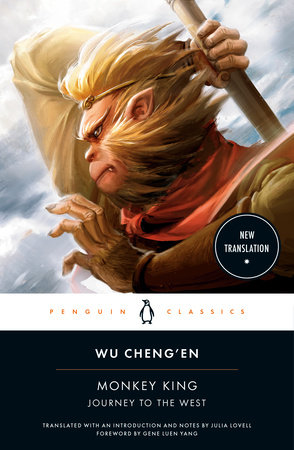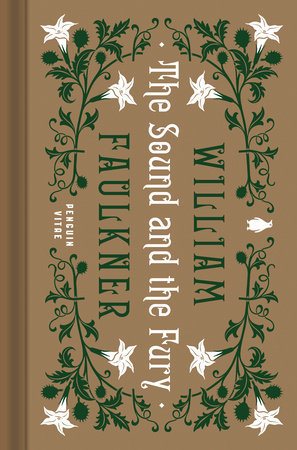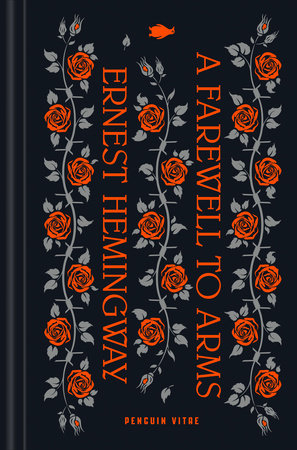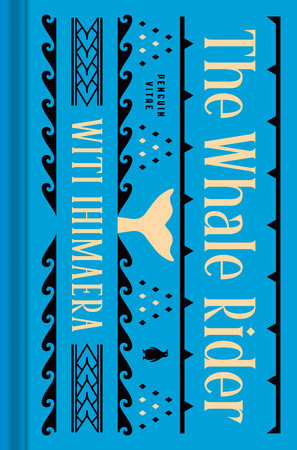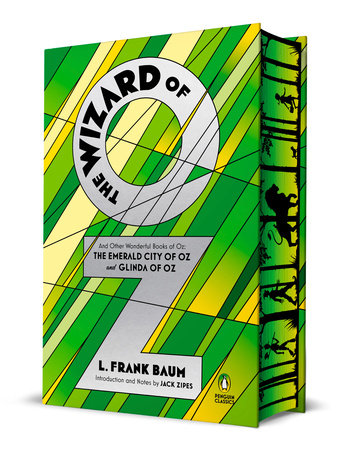Excerpt
Monkey King
Chapter One
After Pan Gu created the universe, by separating earth and sky with his mighty ax, the world was divided into four continents, in the north, south, east, and west. Our story takes place in the east.
By a great ocean lay a land called Aolai, within which was a mountain called Flower-Fruit, home to sundry immortals. What a mountain it was: of crimson ridges and strange boulders, phoenixes and unicorns, evergreen grasses and immortal peaches. And on its peak sat a divine stone, thirty-six and a half feet high, twenty-four in circumference.
Since creation, this rock had been nourished by Heaven and Earth, the sun and the moon, until it was divinely inspired with an immortal embryo, and one day gave birth to a stone egg, about as large as a ball. After exposure to the air, it turned into a stone monkey, with perfectly sculpted features and limbs. This monkey learned to climb and run, then bowed in all four directions of the compass. Two golden rays shone from his eyes all the way to the Palace of the Polestar, startling the benevolent sage of Heaven, the Jade Emperor, while he sat on his throne in the Hall of Divine Mists surrounded by his immortal ministers. The emperor ordered two of his generals, Thousand-Mile Eye and Follow-the-Wind Ear, to look out of the South Gate of Heaven and locate the source of this light. "Your humble servants," they soon reported back, "have traced it back to Flower-Fruit Mountain, in the small country of Aolai on the eastern continent, where a rock has given birth to an egg, which has turned into a stone monkey, whose golden eyes have dazzled even Your Majesty. But now the monkey has paused for some refreshment, and the blaze has dimmed."
"The creatures of the mortal world are all born from heaven and earth," the Jade Emperor remarked tolerantly. "Nothing they do can surprise us."
The monkey gamboled over the mountains, eating grass, drinking from streams, picking mountain flowers, hunting for fruit; he kept company with wolves and snakes, tigers and panthers, befriended deer and antelope, and swore brotherhood with macaques and apes. At night, he slept below cliffs; at sunrise, he wandered through mountains and caves, with no sense of the passing of time.
One sweltering morning, he sheltered from the heat with a crowd of monkeys in the shade of some pines; they swung from branch to branch, built sand pagodas, and chased dragonflies and lizards. Afterward, bathing in a mountain stream, they noticed how its current seemed to tumble like rolling melons and wondered where it was coming from. "As we don't have anything particular to do today," one of them suggested, "let's follow the stream to its origin." With shrieks of happy agreement, they all scrambled up the mountain to a great curtain of a waterfall.
The monkeys clapped their hands in delight. "Whoever dares pass through the waterfall to discover the source of the water, and returns alive, can be our king."
After three calls for a volunteer, the stone monkey suddenly jumped out of the crowd. "I'll go!" This excellent monkey closed his eyes, crouched, then sprang with one bound through the sheet of water. Once on the other side, he opened his eyes. Before him was a gleaming iron bridge, under which flowed the source of the stream. From the bridge, he could see into a beautiful cave residence: cushioned with moss, hung with stalactites, furnished with carved benches and beds, and equipped with pans and stoves. In the middle of the bridge hung a stone tablet on which was written, in large, regular calligraphy, the following address:
Heavenly Water-Curtain Cave
The Blessed Land of Flower-Fruit Mountain
The stone monkey leaped back out through the waterfall. "Fantastic luck!" he whooped.
"What's it like inside?" the other monkeys crowded around to ask. "How deep is the water?"
"It's the perfect place for us to make our home, an ideal refuge from heaven's fits of temper," explained the stone monkey, and described the wonders of Water-Curtain Cave. "It could easily hold thousands of us. Let's move in straightaway."
"You go first and we'll follow behind!" yelped the others.
Once more, the stone monkey crouched, shut his eyes, and sprang through the water. "Come on!" he called. The braver of the monkeys immediately followed; the more nervous ones tweaked their ears, scratched their cheeks, stretched, and chattered a good deal before eventually leaping onto the bridge and into the cave. Once there, they were soon snatching at bowls, fighting over stoves and beds, and dragging things back and forth-for such is the mischief of monkeys. There was not a moment's peace until they'd fretted themselves into exhaustion.
The stone monkey spoke again: "A monkey stands and falls by his word. You promised that whoever dared pass through the waterfall and returned safely would be king. So what are you waiting for?"
Without a murmur of dissent, the monkeys immediately bowed and wished their new king a long, long life. Their new ruler quickly dropped his old name-Stone Monkey-in favor of Beautiful Monkey King and appointed a few of the monkeys to ministerial and civil service positions. The monkeys then devoted themselves to exploring the delights of Flower-Fruit Mountain by day and returning to Water-Curtain Cave at night.
The Beautiful Monkey King lived this happy, innocent life for somewhere between three and five hundred years. Then one day, while banqueting with the other monkeys, he suddenly became melancholy and began to weep. "What has upset our great king?" clamored the others.
"I fear for the future," the monkey king explained with a sigh.
"But we live in bliss," said his subjects, laughing, "slaves of neither the unicorn, phoenix, nor man. Why are you worrying about the future?"
The monkey king said: "Life is good now, but eventually we will grow old and fall into the clutches of Yama, King of the Underworld."
While the monkey masses-instantly fearful-buried their faces in their hands and mewled piteously, a long-armed ape jumped out of the crowd: "Our great king's new sense of mortality suggests the beginnings of a religious calling. Only three types of creature can escape King Yama and his wheel of life and death: Buddhas, immortals, and holy sages."
"Where are they to be found?" asked the monkey king.
"In ancient caves on divine mountains."
"I leave immediately," declared the monkey king. "Even if my quest takes me to the very end of the world, I will return with the secret of eternal life."
All the monkeys applauded wildly. "Marvelous! First, though, we will gather fruits from far away for a huge send-off feast." The next day was taken up with preparing and consuming this banquet, an extraordinary spread of plums, cherries, lychees, pears, dates, peaches, strawberries, almonds, walnuts, chestnuts, hazelnuts, tangerines, sugarcane, persimmons and pomegranates, and coconut and grape wine. The monkey king sat at the head of the tables, with his subjects approaching in turn, in strict order of age and rank, to toast him with wine, flowers, and fruit.
The following day, the monkey king rose early. "Make me a dry pinewood raft, little monkeys, and fetch me a bamboo pole and some fruit for the journey." When all was ready, he hopped onto the raft and, pushing off with all his might, set off across the ocean. He was in luck, for a strong southeasterly wind blew him directly to the northwest coast of the southern continent. When his bamboo pole told him he was in shallow water, he abandoned the raft for the shoreline, where he encountered humans hunting for fish, wild geese, and clams and dredging salt.
He ran at them, making strange faces, and they dropped their baskets and nets and scattered in terror. The monkey king grabbed the slowest of them and stripped him of his clothes. After dressing in them, Monkey made a tour of the continent's towns and cities, studying human manners and speech. Eight or nine years passed. Monkey remained determined to seek the formula for eternal life, while the humans who surrounded him sought only money and fame, without a thought for their own mortality; no one cared what became of him.
Eventually, Monkey came to the Western Ocean. Still in search of immortals, he built himself another raft and floated across to the western continent. In time, he approached a beautiful, jagged mountain, thickly forested at its base and luxuriant with flowers, grasses, mosses, bamboo, and pines-an ideal hermit's refuge. Unconcerned about the danger of wolves, snakes, tigers, or leopards, Monkey climbed up to look around. When he reached the top, he suddenly heard a human voice singing deep within a copse of trees.
I sleep till dawn then wander the wood,
cutting creepers for my livelihood.
When I've gathered as much as I can hold,
I stroll singing through the market till it's sold.
I trade my load for wine and rice,
and never haggle over the price.
Living without ambition or conceit,
only immortals and Taoists will I meet.
"At last!" the monkey king rejoiced to himself. Skipping through the forest, he came face-to-face with a woodcutter busy at work, dressed in a large conical hat made of young bamboo, a cotton-gauze tunic with a silk sash, and straw sandals. "Salutations, immortal!" Monkey hailed him.
The flustered woodcutter dropped his ax. "Hush! I am a poor, ignorant man unable even to feed or clothe myself."
"Why, then, do you sing about immortals?" Monkey asked him.
The woodcutter laughed: "Oh, that. A neighbor of mine, an immortal as it happens, taught the song to me, to cheer me up when life was getting me down. A moment ago, I started worrying about something, so I sang it. I didn't know anyone was listening."
"Why don't you become his disciple? You could learn the secret of eternal life."
"I've not had an easy life," the woodcutter explained. "My father died when I was seven or eight. I'm an only child, and have been my mother's sole support ever since. And now that she's getting old, she needs me all the more. All we have is the rice and tea I get in exchange for my firewood. I can't abandon her for a religious life."
"Well, I'm sure you will be rewarded in later life for your filial devotion. In the meantime, though, could you point the way to the immortal's house, so that I can pay him a visit?"
"It's not far. This is Heart and Soul Mountain. About seven or eight miles to the south, you'll come to the Cave of the Tilted Moon and Three Stars, the home of an immortal called Subodhi, who has trained many disciples, and currently has thirty or forty studying under him."
Monkey tugged at the woodcutter. "Come with me! You won't regret it."
"Did you not listen to anything I said just now?" he answered, exasperated. "I've wood to chop. On your way now."
So Monkey left the woodcutter and found the path to the south. After seven or eight miles, a heavenly cave dwelling came into sight, shrouded in mists and light, framed by an emerald-green forest of bamboo and cypress and by moss-covered hanging cliffs. Cranes, phoenixes, apes, deer, lions, and elephants roamed about. The entrance was tightly sealed and the place seemed uninhabited, but a huge stone slab-thirty feet long by eight feet wide-told Monkey that the woodcutter had spoken the truth: the cave of the tilted moon and three stars, heart and soul mountain. Not daring to knock, Monkey loitered on a nearby pine, nibbling some nuts.
After a very short while, the door creaked open and a young immortal of exceptionally refined looks emerged. He wore a robe with loose, billowing sleeves; his hair was bound with silk cords. "Who's making all that noise?"
Jumping down from the tree, Monkey bowed. "I didn't mean to disturb you. I'm here to learn the secret of eternal life."
"You seek the Way, you say?" The young man smiled. "Our master just told me to look outside the front door for a new student."
"That would be me!" exclaimed Monkey.
"Come on, then," the young man said, ushering him inside.
Monkey followed the youth deep into the cave, past story upon story and row upon row of jeweled pavilions, towers, and arches, until they reached the foot of a jade platform, on top of which sat Subodhi, the famous Patriarch of the West; thirty trainee immortals sat on the ground below. "Master!" Monkey gasped, launching into a frenzy of kowtows.
"Tell me your name and where you're from," Subodhi asked, "before you smash your head beyond repair."
"I come from Water-Curtain Cave on Flower-Fruit Mountain in the land of Aolai on the eastern continent."
"Throw him out!" Subodhi roared. "Liars can't learn enlightenment! Two oceans and the southern continent lie between here and Aolai."
Monkey resumed his kowtowing, this time at double speed. "It's true!" he protested. "My journey here took more than ten years."
"Hmpf," conceded Subodhi. "That sounds about right. So what's your name? Who were your parents?"
"I have no parents," Monkey replied.
"Were you born from a tree, then?"
"All I can remember is an immortal rock on Flower-Fruit Mountain. One year, it split open, and there I was."
"I see," considered Subodhi, hiding his delight at this revelation. "So you were born of heaven and earth. Get up and walk about, so I can look at you." Monkey scampered this way and that. "You're not exactly classically handsome," Subodhi said, laughing, "but you look exactly as a monkey reared on fruit and nuts ought to. I'll give you a surname: Sun. Written one way, it means monkey. But I'll drop the animal radical, leaving us with the Sun that means child."
Monkey burbled with glee. "A surname! I've got a surname! But can I have a given name also, so that you can easily call me hither and thither?"
"The given names of my disciples rotate within a cycle of twelve characters."
"And those twelve characters are?"
"Broad, guang; great, da; wise, zhi; intelligent, hui; true, zhen; obedient, ru; of nature, xing; of the sea, hai; outstanding, ying; awoken, wu; rounded, yuan; enlightened, jue. As you fall into the tenth, 'awoken,' wu, I will call you Sun Wukong: Sun-who-has-awoken-to-emptiness. Happy with that?"
"Sun Wukong!" Monkey chortled. "I love it!"
The name spoke an important truth: for at the beginning of everything, there were no names-only emptiness. To advance from emptiness, living creatures must first become aware of it.
And if you wish to know what Monkey learned next, you must read on.
Chapter Two
While Monkey pranced delightedly about, Subodhi ordered the congregation to take him away and teach him some basic rules of hygiene and etiquette. The disciples found Monkey a place in the corridor where he could sleep, and the following morning he began to learn from his fellow students how to speak and behave. Day in, day out, they discussed scriptures and doctrines; he practiced calligraphy and burned incense. In his spare time, he swept the ground and weeded the gardens, tended to the trees and flowers, gathered wood and lit fires, and fetched water and carried drinks. Six or seven perfectly contented years slipped by. Eventually, Subodhi climbed back onto his rostrum and summoned his immortals for a lecture on doctrine: a synthesis of Taoism, Buddhism, and Confucianism.


